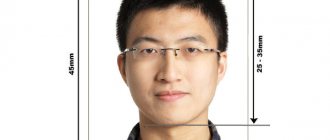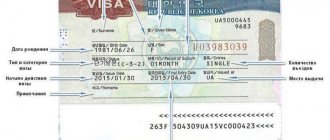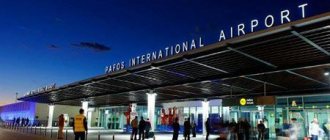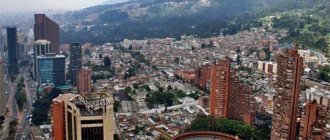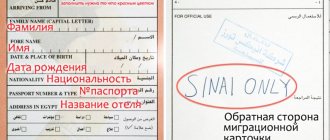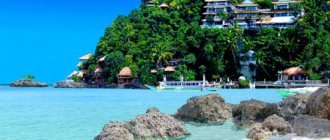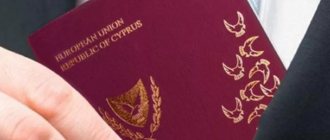Some Russian citizens who are direct descendants of immigrants from Asian countries seek to return to their historical roots; one way to do this is to use the F4 visa to South Korea for ethnic Koreans. Let's try to figure out how to get it and what rights it gives, why it is considered perhaps the most comfortable way to get a job in this Asian country.
Who is eligible to receive F4?
First of all, the visa is intended for the return of ethnic Koreans to their homeland, that is, those who previously left their homeland for some reason but can prove their origin. In the 20th century, large numbers of Koreans left their homeland and there are currently more than 5 million potential birthright visa applicants scattered around the world. On this basis, a visa can be obtained by:
- descendants of Koreans in no more than three generations;
- ethnic Koreans who have reached the age of 60.
It’s worth saying right away that this document gives foreigners the right to work in the country, provided:
- received education in higher and secondary educational institutions of this state and worked in their specialty for at least six months;
- living and working on an H-2 visa after the expiration of the two-year period. This rule also applies only to ethnic migrants.
Only law-abiding citizens who have complied with the visa regime and have proven themselves well in their work activities will be able to obtain such a permit.
Obtaining a visa has become somewhat easier in recent years, however, the Ministry of Justice of the Republic of South Korea has issued a new decree, according to which all persons holding a document of this type must additionally appear at the migration service office to submit biometric data: photographing and fingerprinting.
The procedure takes place from 01.10. 2021 to 30.09.2021. The website https://www.hikorea.go.kr/pt/main_kr.pt shows the dates for visiting the migration service depending on the age of the migrant. All information is provided in Korean, but knowledge of it is one of the conditions for safe living and working in the country.
Attention! Persons who received an F4 visa by replacing it with an H2 visa do not have to undergo the procedure for submitting biometric data.
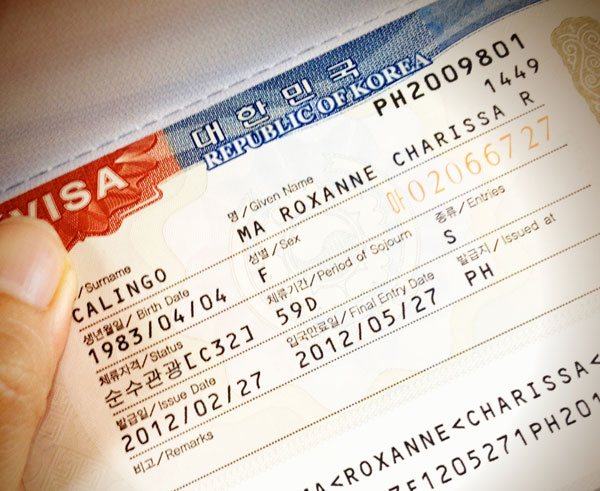
Visa to South Korea
Starting from January 1, 2014, Russians and citizens of CIS countries have the opportunity to visit South Korea for the purposes of tourism, transit, visiting relatives or friends, or for short business visits, without applying for a visa. It is important that the duration of the trip is no more than 60 days. It is also worth remembering that within every 180 days you can spend no more than 90 days in the country. All other cases require obtaining a visa in advance.
Types of visas
Long-term visas to South Korea are divided into the following types:
- Long-term visas categories D, E and H.
- Entry visas category F-4 for foreign compatriots.
Long-term visas categories D, E and H are issued to persons traveling to South Korea to study or work. Validity periods, depending on the purpose of stay, can range from 91 days to 2 years.
Entry visas of the F-4 category are issued to ethnic Koreans from Russia, the CIS countries and China who have studied in a master's or graduate school or worked for at least 6 months in South Korea, as well as are engaged in professional activities in their country and have previously visited South Korea without violating the visa regime.
Visa application procedure
You can apply for a visa to South Korea in person or by contacting one of the Pony Express offices. Documents can be submitted to the Moscow consulate on weekdays from 9:00 to 12:00, and you can receive a completed visa from 17:00 to 18:00. In St. Petersburg, the consulate accepts documents from 10:00 to 12:00, and issues ready-made visas from 17:00 to 17:30.
Through Pony Express, visa applications can be submitted by residents of those regions that do not belong to the consular districts of the South Korean consulates in St. Petersburg, Irkutsk and Vladivostok.
The South Korean Consulate in St. Petersburg issues visas to residents of: the city of St. Petersburg, the Komi Republic, the Republic of Karelia; Vologda, Arkhangelsk, Kaliningrad, Murmansk, Leningrad, Pskov, Novgorod regions, Nenets Autonomous Okrug.
The South Korean Consulate in Irkutsk issues visas to residents of: Buryatia, Altai, Sakha (Yakutia), Khakassia, Tuva, Irkutsk, Novosibirsk, Omsk, Kemerovo, Tomsk regions, Trans-Baikal Territory, Altai Territory, Krasnoyarsk Territory.
The South Korean Consulate in Vladivostok issues visas to residents of: Khabarovsk Territory, Primorsky Territory, Magadan, Amur, Sakhalin Regions, Jewish Autonomous Region, Kamchatka Territory, Chukotka Autonomous Okrug.
For those who apply for visas of categories E-1, E3 and E5 (visas for professors, researchers and those engaged in professional activities), it is possible to apply for a visa without visiting the consulate - on the website of the Ministry of Justice of South Korea. In this case, the applicant will be sent an e-visa form to his email address, which must be printed and carried with him during the trip.
Price. For a long-term single-entry visa, which gives the right to stay in South Korea for more than 91 days, a fee of $90 is charged. For all types of multiple-entry visas, the fee is $120. The fee is paid at the consulate when submitting documents in dollars in cash. If you apply for a visa through the website of the Ministry of Justice of South Korea, you can pay the fee using a bank card.
If documents for a visa are submitted through the Pony Express company, the visa fee is paid in rubles at the company's office in accordance with the Central Bank exchange rate on the day of payment. In addition, you will have to pay a service fee, the amount of which is 900 rubles for residents of Moscow or 1600 for residents of the regions, or if the documents were submitted in Moscow, and the visa is obtained in another region.
Deadlines for registration. Long-term visas to South Korea are usually issued for a minimum of 10 days and a maximum of 4 weeks.
Documents required for visa application, other requirements
In case of a short-term visit to South Korea, you must have the following documents with you when crossing the border:
- A foreign passport valid at the time of entry into the country.
- Return tickets or, in case of transit, tickets to the destination country.
- Confirmation of a hotel reservation (possibly in the form of a printout from the Internet), a travel agency voucher, or confirmation of sufficient funds for the entire stay in the country.
- A completed customs declaration or migration card (you can receive it on the plane, on the ferry, or upon arrival at the airport).
To obtain a long-term visa to South Korea at the country's consulate, you will need the following documents:
- A foreign passport valid for at least 6 months from the end of the trip.
- A copy of the first page of the foreign passport containing the applicant’s personal data.
- If your old passport contains visas from countries such as Canada, USA, Australia, Japan, Schengen countries, a copy of it.
- An application form filled out in English or Korean in two copies, certified by the applicant’s signature.
- A color photograph on a light background, taken no earlier than six months before submitting the application. The dimensions of the photo are 3.5x4.5.
- An application for a visa issued by the inviting party.
Contacts of embassies and consulates in the Russian Federation
Embassy of the Republic of Korea in Moscow
Address: 119121, Moscow, st. Plyushchikha, 56 building 1 Telephone, fax E-mail Website: https://rus-moscow.mofa.go.kr/worldlanguage/europe/rus-moscow/main/index.jsp
Consulate of the Republic of Korea in St. Petersburg
Address: 191014, St. Petersburg, st. Nekrasova, 32A Telephone Service regions: St. Petersburg, Komi Republic, Karelia Republic; regions: Vologda, Arkhangelsk, Kaliningrad, Murmansk, Leningrad, Pskov, Novgorod, Nenets Autonomous Okrug.
Consulate of the Republic of Korea in Irkutsk
Address: 664000, Irkutsk, Gagarin Boulevard, 44, Hotel Irkutsk Telephones Service regions: republics: Buryatia, Altai, Sakha (Yakutia), Khakassia, Tuva, Irkutsk region; Novosibirsk, Omsk, Kemerovo, Tomsk regions, Transbaikal region, Altai region, Krasnoyarsk region.
Consulate of the Republic of Korea in Vladivostok
Address: 690091, Vladivostok, st. Pologaya, 19 Phone E-mail Regions of service: Khabarovsk Territory, Primorsky Territory, Magadan, Amur, Sakhalin Regions, Jewish Autonomous Region, Kamchatka Territory, Chukotka Autonomous Okrug.
What does a visa provide?
It is worth saying right away that this document gives the right to fully live and work throughout the country. It is not limited in duration, but must be renewed after a five-year period. Usually this procedure is not difficult. This is a type of multiple permit; it is not only unlimited in terms of length of stay, but also in terms of the number of entries into the country. For Russians, it means the right to work in:
- industry;
- agriculture and fish farming;
- livestock farming;
- other areas with a shortage of local personnel for highly qualified specialists.
Consequences of not complying with the visa regime
It is important to understand that despite the presence or absence of a permit stamp in the passport (if there is no need for its presence - tourism, for example), the decision whether to let a foreign citizen into the country or not rests entirely with the border service officer and does not require him to explanations. Therefore, it is important to take into account all the recommendations when visiting the republic as a tourist: a border guard officer may be confused by the lack of hotel reservations or complete ignorance of tourist attractions, visiting which a citizen may cite as the main reason for arriving in the country.
.
Many migrants of Asian appearance from the former Soviet republics, receiving citizenship of the Russian Federation, seek to illegally stay in the South Caucasus to work. Coming to the country under the pretext of “seeing the sights,” fellow citizens, violating the rules of the visa-free regime, remain in the republic illegally
. As a rule, these are labor migrants who are not only staying in the country without the necessary permission, but also carrying out labor activities illegally.
From April to October 2021, the authorities of the South Caucasus opened a “green corridor” for illegal migrants, which allowed them to leave the country without penalties. According to official data as of 2021, there were just over 3 thousand illegal immigrants in the country, of which about 400 took advantage of the opportunity provided
.
For those citizens who did not take advantage of this opportunity and decided to stay in the country illegally, there is a deportation procedure
.
If a citizen leaves the country on his own, then when passing through customs control, a violation is entered into his passport, which determines the degree of punishment (denial of entry into the territory of this country for 2 years or more)
. Foreigners who stayed in the country for 1-2 days after the expiration of the permit (as a rule, due to an incorrect calculation of days) and independently left the territory of the state are treated with understanding and do not limit their subsequent visit to the republic.
The Ministry of Justice has designated the period from October 1, 2021 to March 31, 2021 as a “green corridor.” Foreigners staying illegally are given the opportunity to voluntarily leave the country without being prohibited from re-entering.
— All Korean organizations, including construction ones, will bear administrative penalties for using illegal labor.
— All foreigners working in the construction industry without the appropriate license will be deported without warning.
— Foreigners caught illegally will be forcibly deported, with the transfer of personal data to the government of their country.
Illegal aliens planning to voluntarily leave the country must visit the Immigration Center at the airport on the day of departure, presenting their passport and air ticket. It is recommended to visit the immigration center 3-4 hours before departure.
Source:
Useful information about the F-1 visa. Answers to the question whether you need to leave Korea after 90 days.
— Somewhere in Busan itself there is a school. With F-1, go to the immigration office, they will give you an “ai di kadu” for your spouse’s visa.
— Go to the imigreshka, where they will give you an F-1 visa from your husband for a year. You can renew every year as long as your husband has a visa
— Or maybe you know someone who can help get an ID card with an F-1 visa?
— You and your husband are going to the imigre. From him you need his ID, documents from work if he works officially, a marriage certificate, an apartment contract and fill out a form
. Photo 3x5 on a white background
— I was told that the F-1 visa cannot be extended since this is a guest visa. Do you know for sure that you can renew?
— The guest room is C38. F-1 is a family visa received upon arrival in Korea by the spouse and children
.
It is given for a year with the right to extend according to the date of the spouse's visa
. Yes, I’m sure my sister and her child stopped by, and many other relatives and friends who are under 25 years old or brought children
- Thank you very much. you reassured me
. Can I ask one more question? If my husband adopts my children, can they come to school?
- Yes. It is necessary to provide an adoption document, that now he is considered to be the father
. Translate into English or Korean and notarize
— Please tell me, write more precisely. My husband is Russian
. He can enter Korea from Kazakhstan without a visa because (visa-free regime). Will I be able to
— He will be given an F-1 visa here
— F-1 is obtained here if you have documents.
— How many months later can a husband send an invitation?
- At least right away. There is no specific time.
Obtaining a visa has become somewhat easier in recent years, however, the Ministry of Justice of the Republic of South Korea has issued a new decree, according to which all persons holding a document of this type must additionally appear at the migration service office to submit biometric data: photographing and fingerprinting. The procedure takes place from 01.10
.
2021 to 30.09.2021. The website https://www.hikorea.go.kr/pt/main_kr.pt shows the dates for visiting the migration service depending on the age of the migrant
.
All information is provided in Korean, but knowledge of it is one of the conditions for safe living and working in the country. Attention!
Persons who received an F4 visa by replacing it with an H2 visa do not have to undergo the procedure for submitting biometric data . What does a visa provide? It is worth saying right away that this document gives the right to fully live and work throughout the country.
Where and how to get it?
You can obtain such a visa at the South Korean diplomatic mission in:
- Moscow;
- St. Petersburg;
- Irkutsk;
- Vladivostok.
Additionally, it works at the Asian Visa Application Center, but when applying to it you will have to pay a service fee. It is fashionable to formalize it directly in the state itself. To do this, you will need to provide a package of documents. For Russians it will be the same as for people from other countries:
- F4 visa application form for ethnic Koreans. To be filled out in English or Korean. Let’s say right away that it is advisable to know the language; getting a prestigious job without knowing it is practically impossible.
- It is not difficult to fill it out, since next to the hieroglyphs there is an English translation. Errors and blots are unacceptable.
- one color photo of the Schengen standard;
- a foreign passport valid for another six months from the date of expiration of the proposed visa;
- internal passport of the Russian Federation;
- document confirming the change of surname, if any;
- medical certificate confirming the absence of socially dangerous diseases, including tuberculosis;
- a copy of an education document with a status of at least bachelor's degree;
- a copy of the work book;
- certificate for places of work in the Russian Federation;
- a document confirming completion of a linguistic course of at least level 3;
- document confirming Korean origin. You will have to provide copies of documents on the extension of all ancestors up to the Korean ancestor.
Attention! Documents can be provided in person or using the Pony Express courier service; sending by Russian Post does not make sense.
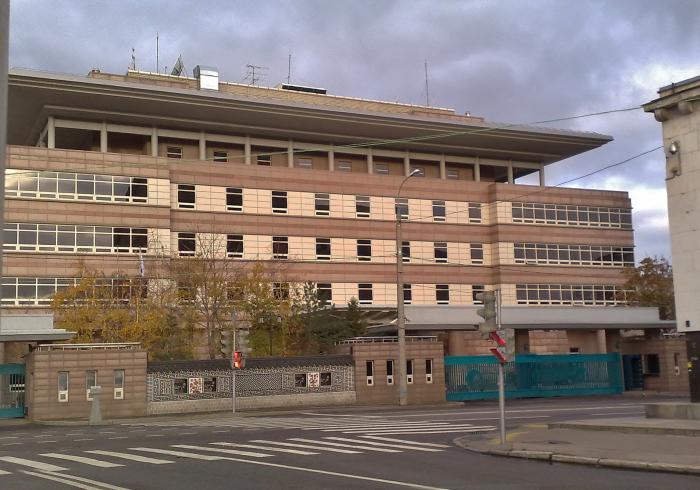
General list of documents for opening an F4 visa
provides services for preparing and submitting a package of documents to the consulate for obtaining visas. Our employees will tell you what documents will be needed in a particular case. In general, before you get an F4 visa to South Korea, you must have:
- completed application form;
- general civil and foreign passports (biometric or old-style);
- color photo of 3.5 cm by 4.5 cm format, made on a gray background;
- certificate of absence of tuberculosis.
The application form for an F4 visa to South Korea can be completed in two languages. Those who do not speak Korean can enter data in English.
F19 visa – documents
Of considerable importance is the opportunity to invite or even transport relatives from Russia. This opportunity is available to legalized F4 visa holders. To do this, you will need to provide the following documents:
- application form for an F19 visa for direct relatives of Koreans. It must be filled out in duplicate and, just like the F4 application form, it must be filled out in Russian or English. Requirements for design standards are normal, without errors or typos.
- the applicant’s internal Russian passport and a copy of the migrant’s passport with an F4 visa;
- a copy of an education document with a status of at least bachelor's degree for a migrant with an F4 visa, the diploma itself and an insert with academic grades;
- two color photographs of the Schengen standard;
- a foreign passport valid for another six months from the date of expiration of the proposed visa;
- document confirming the change of surname if there was one;
- apostille and copy of the migrant's visa with an F4 visa;
- $100 consular fee.
- document confirming birth from or marriage to an ethnic Korean with an F4 visa: marriage or birth certificate.
Design algorithm
To obtain the desired visa, you will need to submit an application to the Korean missions, which are located in the following regions:
- Moscow;
- Saint Petersburg;
- Irkutsk;
- Vladivostok.
The option of contacting accredited visa centers is also available. But it is worth understanding that using the services of these organizations is not at all free of charge - for their activities you will need to pay a special service fee.
In addition, the applicant can obtain a visa directly in Korea - and he must have all the requested information on hand.
Sample application form for a visa to North Korea:
Difference from H2 visa
H2 is a fairly common type of visa to Korea, also intended for ethnic Koreans, although as already mentioned, prestigious work in South Korea on an F4 visa is more likely. Firstly, H2 does not give the right to engage in business or work in offices, unlike F4, according to which you cannot work in jobs with purely physical labor. Secondly, F4 can be obtained by ethnic Koreans no more than in the third generation, while heirs who have at least a quarter of Korean blood and are over 25 years old can apply for H2.
It remains to add that obtaining a visa of this type is not very easy and registration can take up to a month, and consular departments reserve the right to request clarifying documents, and you need to be extremely careful to get permission the first time.
Who can use the F4 visa?
An F4 visa to South Korea is available for Russians who have studied at Korean educational institutions and worked in their acquired specialty for at least 6 months. Ethnic Koreans who have received citizenship of Russia or another country of the former USSR and were born no earlier than August 15, 1948 can also obtain a visa. The main applicants for entry permit type F4 are professional workers employed in industry, livestock farming, agriculture, fisheries, and fish processing industries.
